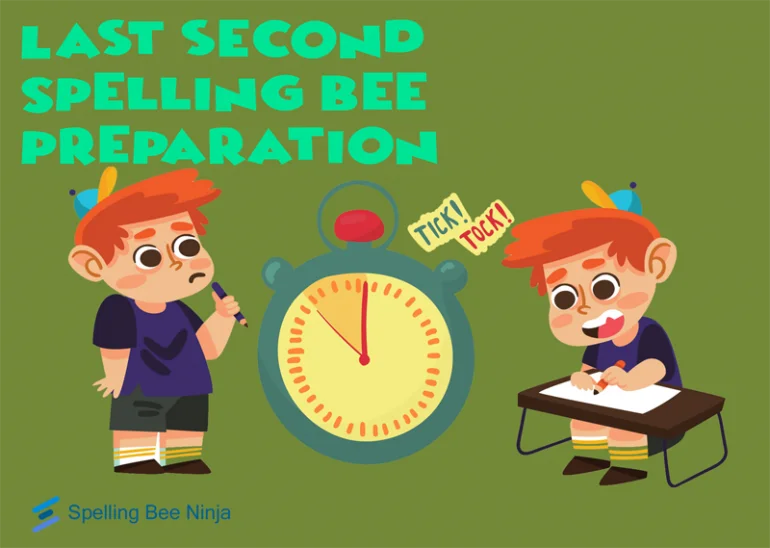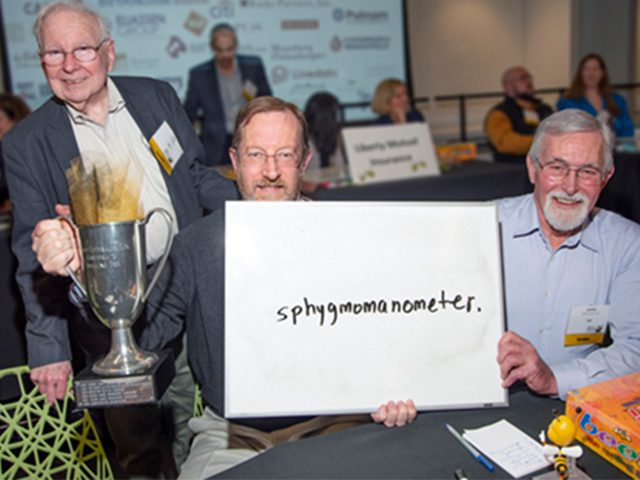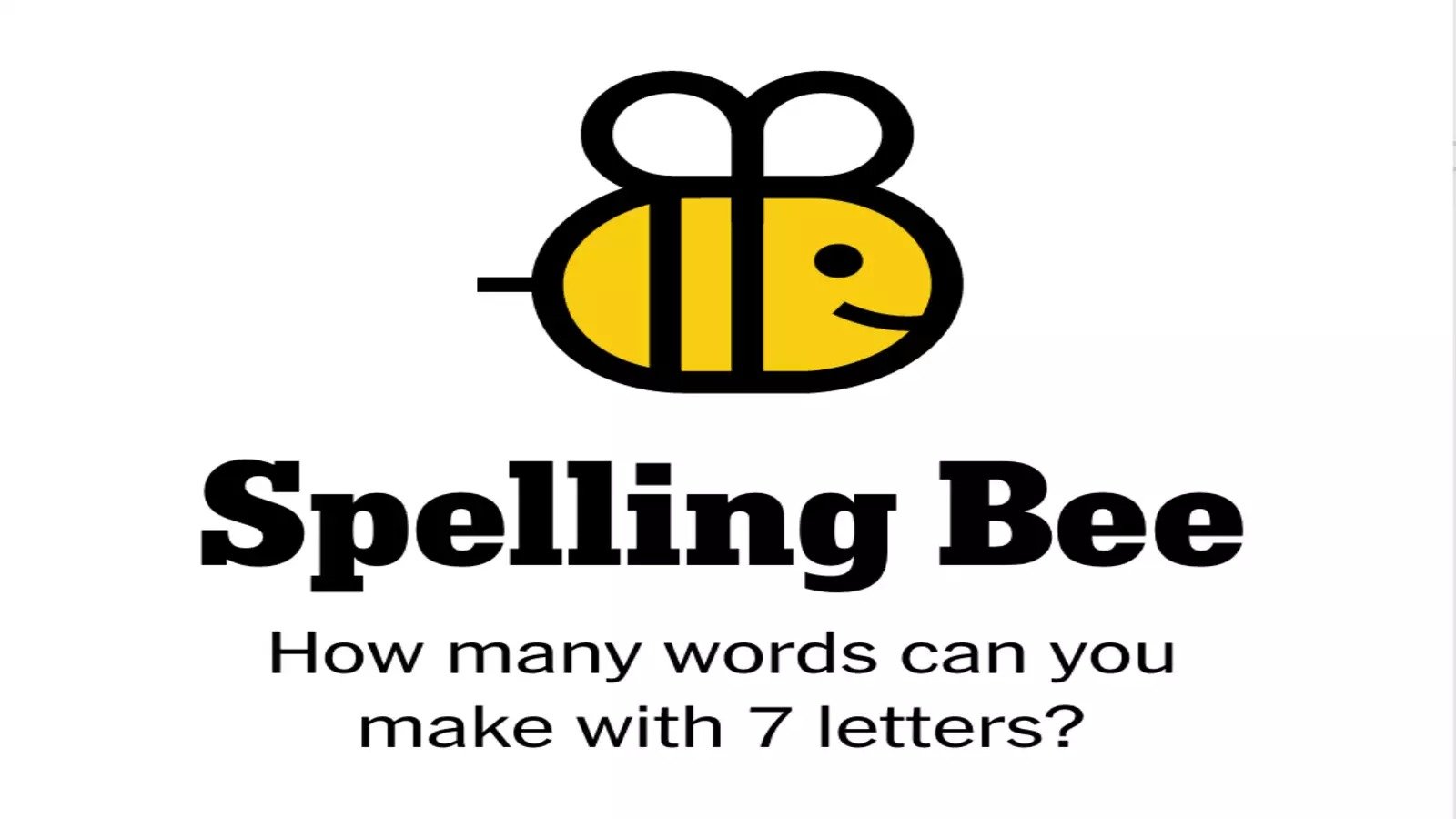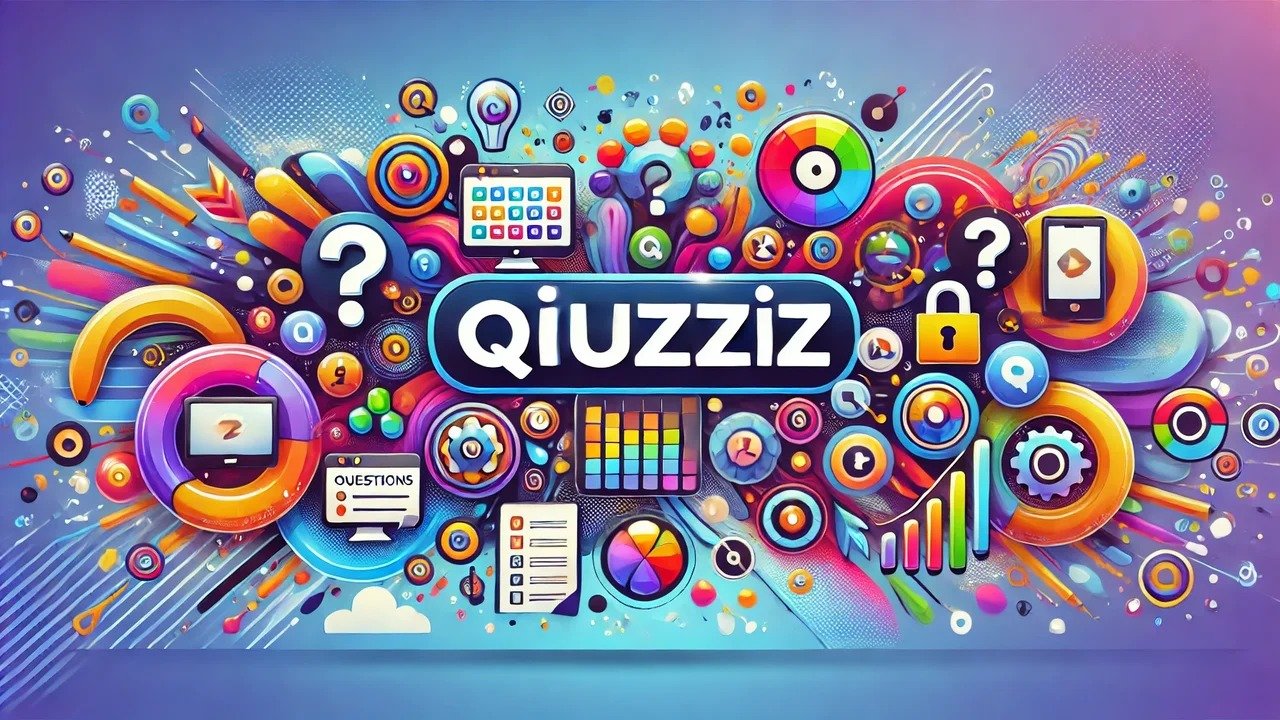Introduction to Spelling Bees
Spelling Bee Hints are competitive events that test participants’ spelling abilities and are popular in various educational settings, particularly in the United States. Originating in the 19th century, these competitions have evolved into a significant part of academic culture, showcasing students’ dedication to mastering language. The concept of spelling bees dates back to the 1800s, and they became more structured with the establishment of national competitions, such as the National Spelling Bee Hints founded in 1925. This format not only nurtures a passion for language but also encourages healthy competition among students.
Typically, participants are given words to spell aloud, often sourced from a prepared list. The difficulty of the words ranges from simple to exceptionally challenging, testing the breadth of a student’s vocabulary. Each round eliminates those who misspell, culminating in a showdown of the most adept spellers. This format fosters an environment of learning and improvement, where contestants often utilize spelling bee hints and strategies to succeed. These hints can include tips on word origins, phonetics, and even memory techniques that aid in recalling complicated spellings.
The educational significance of spelling bees cannot be overstated. They serve as a platform to enhance vocabulary and spelling skills among participants, promoting linguistic development that extends beyond the competition itself. Students learn to tackle unfamiliar words with confidence and develop critical thinking skills as they decode complex spelling rules. Furthermore, educators often emphasize the value of practice through spelling bee hints, which can lead to improved performance not just in spelling competitions, but also in broader academic contexts. Thus, mastering the art of spelling through these events plays a crucial role in a student’s overall educational journey.
Understanding the Spelling Bee Format
![The Advanced Spelling Bee Guide: All You Need to Know! [Updated 2021]](https://blog.spellquiz.com/wp-content/uploads/2019/02/9.jpg)
To successfully navigate a spelling bee competition, participants must first comprehend its typical format, which includes specific rules, judging criteria, and elimination processes. Generally, a spelling bee consists of multiple rounds in which contestants are prompted to spell words aloud. These words can vary significantly in difficulty, and they are chosen from a predetermined list curated by the competition organizers.
The rules governing spelling bees may differ slightly from one competition to another, but some common elements remain constant. Contestants typically take turns spelling words, and they may ask for definitions, origins, or sentences before spelling, which can be particularly helpful. Understanding how to utilize these resources is one of the essential spelling bee hints that can aid in securing successful outcomes. Additionally, a competitor may be eliminated immediately if they misspell a word in certain formats, while other competitions allow for multiple attempts which can provide a cushion for errors.
Judging criteria are another crucial aspect of the format. Judges are responsible for evaluating the spelling accuracy and ensuring adherence to the official rules. They may also handle disputes raised by contestants regarding word pronunciation or interpretation. This system underscores the necessity of being well-prepared and understanding the expectations during the competition. The format is designed to ensure a fair competition while emphasizing the importance of proficiency in spelling.
As contestants advance through rounds, the words typically increase in complexity, further testing their spelling and comprehension abilities. Recognizing how different rounds function allows participants to formulate strategies, enhancing their chances of success. To thrive in a spelling bee, a solid grasp of the competition format, coupled with effective spelling bee hints, is indispensable for aspiring contestants aiming to master their skills.
Essential Spelling Bee Hints for Success

In the realm of spelling bees, mastery of words requires more than just rote memorization. Contestants can significantly enhance their performance by employing a variety of practical spelling bee hints that cover aspects like phonetics, root words, and language origins. Understanding the intricate patterns within the English language can also provide an invaluable edge during competitions.
One effective approach is to leverage phonetics. When encountering a new word, pronouncing it out loud can reveal its phonetic structure. This can help in understanding the sounds associated with letters and syllables. For example, recognizing that ‘ph’ often sounds like ‘f’ in words like “photo” can be crucial in decoding similar words. By translating the word into more familiar phonetic sounds, participants can increase their chances of spelling it correctly.
Another important hint is to familiarize oneself with root words. Many English words are derived from Latin or Greek, and knowing these roots can assist in deciphering unfamiliar terms. For instance, the root “bio” means life, which appears in words such as “biology” and “biography.” By identifying the root, participants can often apply their knowledge to other related words, giving them greater confidence during a competition.
Additionally, understanding the origins of words can provide insights into their spelling. Many words have specific linguistic backgrounds that dictate their spelling rules. For instance, words of French origin often retain their unique spellings, such as “début” and “café.” Recognizing these language origins not only aids in spelling but also enriches a contestant’s vocabulary.
Lastly, spotting common patterns in English spelling can be incredibly beneficial. For example, knowing that silent letters often appear at the beginning or end of words—like the ‘k’ in “knight” or the ‘e’ in “cake”—can relieve some guesswork. By integrating these spelling bee hints into their preparation, contestants can approach each word with greater confidence and efficiency, ultimately improving their overall performance in competitions.
Building a Winning Study Routine

Establishing a structured study routine is integral for success in any spelling bee competition. A well-defined regimen that incorporates effective spelling bee hints can significantly enhance a participant’s preparedness. To start, aspiring contestants should allocate regular practice sessions throughout the week. Setting aside specific time blocks each day for spelling exercises not only fosters discipline but also helps the participant internalize the material. For instance, dedicating 30 minutes every evening to spelling drills can prove beneficial.
In addition to regular practice, it is crucial to identify and schedule time for words that present a challenge. Each participant should maintain a log of difficult words encountered during study sessions. Afterward, they can assign focused time once or twice a week to work exclusively on these troublesome entries. Incorporating various learning methods, such as auditory repetition or mnemonic devices, can help make the process of learning more effective.
Utilizing resources like flashcards and spelling apps is another excellent strategy to enrich one’s study routine. Flashcards allow participants to test their recall in a straightforward manner, while spelling apps often incorporate games and interactive features that can enhance engagement. Many apps also include quizzes and progress tracking, which can provide critical insights into a learner’s improvement over time.
Moreover, joining study groups can also be beneficial. Engaging with peers allows participants to share unique spelling bee hints and strategies. The collaborative environment can motivate individuals and provide new perspectives on challenging words. Overall, by embracing a well-structured study routine that balances regular practice, targeted learning, and the use of diverse resources, competitors can position themselves for success in upcoming spelling bee competitions.
Resources for Vocabulary Enhancement

Enhancing one’s vocabulary is crucial for success in spelling bee competitions. To assist contestants, a variety of resources are available that can significantly aid in developing a robust lexicon and improving spelling proficiency. One of the most traditional yet effective ways is through reading books specifically tailored for vocabulary enhancement. Titles such as “Word Power Made Easy” by Norman Lewis and “The Vocabulary Builder Workbook” by Chris Lele offer structured and engaging approaches to learning new words and their spellings.
In addition to printed materials, numerous websites provide invaluable tools for mastering vocabulary. Websites like Vocabulary.com and Merriam-Webster’s Word of the Day feature interactive exercises and quizzes that can help participants familiarize themselves with new terms. These platforms often include contextual examples and detailed definitions, further solidifying understanding. Moreover, utilizing online dictionaries and thesaurus services can prove beneficial for quickly referencing unfamiliar words encountered during study sessions.
Mobile applications have revolutionized the way students can learn, making it possible to enhance vocabulary on-the-go. Applications such as Quizlet, Anki, and WordUp utilize flashcards and spaced repetition techniques to promote effective learning and retention of spelling. These tools allow contestants to create personalized study sets that cater to their specific needs, ensuring a focused preparation experience. Additionally, engaging with games such as Scrabble or Words with Friends can stimulate interest in word formation and spelling while providing enjoyment.
Ultimately, by leveraging these diverse resources—whether through books, websites, or mobile applications—contestants can strengthen their vocabulary and spelling skills. This not only prepares them for upcoming competitions but also enriches their overall command of the language. Establishing a consistent study regimen utilizing these tools will serve as a solid foundation for mastering the spelling bee challenges ahead.
Overcoming Common Challenges in Spelling Bees

Participating in spelling bees can be a daunting experience for many contestants, as several challenges may arise during the competition. One prevalent obstacle is the anxiety that often accompanies public speaking and competitive situations. To combat this feeling, contestants can implement several techniques such as deep breathing exercises, visualization of successful outcomes, and positive affirmations. Engaging in these practices helps to calm the mind and body, allowing participants to maintain composure when faced with difficult words.
Additionally, spelling bees often present competitors with complex words that can appear intimidating. Contestants should focus not only on memorizing definitions but also on familiarizing themselves with phonetic spellings and common prefixes or suffixes. Understanding the etymology of words can provide context that aids in spelling. Practicing with a friend or coach to simulate real-life scenarios can enhance familiarity and build confidence when encountering challenging words during the competition.
Another significant challenge within spelling bee contests is the pressure of time constraints, which can lead to rushed decisions and mistakes. To avoid this pitfall, contestants should practice pacing themselves during spelling drills. Time themselves while spelling out loud to develop a sense of rhythm and efficiency. During the competition, if faced with unforeseen challenges such as misheard instructions or distractions, taking a moment to pause and gather one’s thoughts can prove beneficial. This can help regain focus and clarity before presenting words to the judges.
Overall, facing the common challenges in spelling bees requires a combination of mental preparation, understanding of language mechanics, and effective pacing strategies. By integrating spelling bee hints into their routines, contestants can navigate the competition with greater ease and confidence.
The Role of Coaches and Mentors

Coaches and mentors play a crucial role in the preparation for spelling bee competitions. Their experience and knowledge are invaluable assets to contestants, providing not only advanced hints but also essential emotional support. The journey of a spelling bee contestant can be daunting, filled with challenges that test both knowledge and perseverance. With guidance from coaches, participants can effectively navigate these obstacles.
One of the primary functions of a coach is to offer tailored instruction. Coaches often assess each contestant’s strengths and weaknesses, designing training sessions that address specific areas for improvement. This personalized approach aids in honing spelling skills, incorporating a variety of techniques that may include memorization strategies, linguistic analysis, and pattern recognition. Such methods are particularly beneficial as contestants prepare for the ever-evolving nature of spelling bee challenges, where a grasp of the intricacies of words is essential.
Mentors, on the other hand, provide a broader perspective. They share their experiences, often recounting personal anecdotes that highlight both the highs and lows of competing. This sharing fosters resilience and determination among contestants, allowing them to recognize that setbacks are part of the learning process. Furthermore, mentors can impart strategies for managing competition anxiety, offering tips on maintaining composure during high-pressure moments.
The emotional support provided by both coaches and mentors significantly enhances a contestant’s confidence. Knowing that they have a dedicated team rooting for them empowers participants to perform to the best of their abilities. As contestants prepare for spelling bees, the practice sessions, feedback, and encouragement from their coaches and mentors ultimately contribute to their success. The collaborative effort between contestants and their support systems underlines the importance of teamwork in mastering spelling bee hints and achieving competitive excellence.
Interactive Practice Techniques

In preparing for a spelling bee competition, engaging with interactive practice techniques can significantly enhance a contestant’s ability to master difficult words. Utilizing various spelling games is an effective method to make learning enjoyable and less monotonous. Games such as spelling toss, where participants throw a ball and spell a word upon receiving it, encourage physical activity while reinforcing spelling skills. Other popular games include spelling bingo, where players match words with predefined letters, fostering not only listening skills but also word recognition.
Group practices can also be remarkably effective. When contestants work together, they can share tips and provide constructive feedback to one another. Organizing practice sessions where participants take turns quizzing each other can cultivate a supportive environment that fosters learning. This collaborative approach allows individuals to learn new spelling bee hints from their peers, promoting a collective growth mindset essential for mastering challenging vocabulary.
In addition to traditional methods, leveraging technology through online quizzes and applications can greatly enhance the practice experience. Numerous platforms provide interactive spelling challenges that cater to various difficulty levels, allowing contestants to tailor their practice according to their current skills. The constant use of these digital tools provides instant feedback, which helps learners identify their strengths and weaknesses in terms of word retention and spelling accuracy.
Furthermore, many online resources provide themed spelling lists and contextual usage, making it easier for contestants to understand and memorize words. When competing, recalling terms within a practical context can aid in retention. The key to success in a spelling bee lies not only in memorizing words but understanding their meanings and applications. Therefore, by integrating these interactive techniques into their preparation, contestants can enhance their performance significantly during competitions.
Conclusion: The Path to Spelling Bee Mastery
In the realm of spelling competitions, mastering the art of spelling is not solely about memorization; it requires a strategic approach that incorporates various spelling bee hints and techniques. Throughout this article, we have explored the importance of effective study habits, understanding word origins, and employing mnemonic devices to enhance memory retention. These methods serve as invaluable tools for any contestant aspiring to excel in their spelling journey.
Embracing the spelling bee hints discussed here enables participants to develop not just their spelling skills, but also a growth mindset essential for success. Rather than viewing competitions as solely a measure of ability, contestants are encouraged to perceive them as opportunities for learning and improvement. This perspective shift can significantly enhance their experience and overall performance during contests.
Dedication to practice, consistent engagement with diverse vocabulary, and strategic utilization of the strategies presented will promote a well-rounded preparation approach. It is important to create an environment that fosters both learning and confidence, allowing contestants to push past their limits and grow in their abilities. Remember, the journey to mastering spelling bees is ongoing, and leveraging all available resources can make a substantial difference.
Ultimately, with the right mindset, a dedication to improvement, and a comprehensive understanding of various spelling bee hints, contestants can navigate the complexities of these competitions successfully. So, as you prepare, remain open to learning and adapting your strategies; the mastery of spelling is a rewarding pursuit that extends beyond the competition stage.










